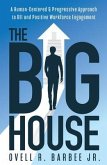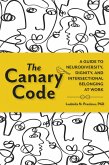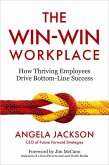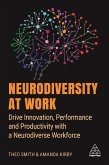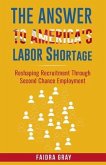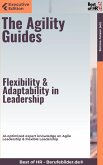A strategic framework for businesses leaders who are grappling with the backlash against the post-pandemic "return to office" demonstrates the strong case for holistic flexibility
Forced to allow remote and hybrid work arrangements during the onset of COVID-19, some organizations made the transition to flexibility with great success, but others floundered because they failed to integrate diversity and flexibility policies throughout their culture. This book shows how to build practices that maximize the potential of every work environment, whether hybrid or not, for connection, collaboration, communication, and contribution.
The Flexibility Paradigm posits that in order to create the return on experience required for flexibility, leaders and managers need to shift their perspective and recognize flexibility as a way to strengthen their organization. Hybrid work is just one part of holistic flexibility, whereby people have options for not just where they work but also how long they work and when they work. Formerly misperceived as a "women's issue," flexibility is now seen to benefit all employees; therefore, it must be degendered, deparented, and destigmatized.
This book presents the strategy and framework needed by professional services firms and other organizations to create an entire culture that allows their organization to build on their strengths and lead the future of work. Leaders will learn that flexibility has a strong business case: it drives productivity, talent, diversity, engagement, sustainability, and ultimately profitability.
Forced to allow remote and hybrid work arrangements during the onset of COVID-19, some organizations made the transition to flexibility with great success, but others floundered because they failed to integrate diversity and flexibility policies throughout their culture. This book shows how to build practices that maximize the potential of every work environment, whether hybrid or not, for connection, collaboration, communication, and contribution.
The Flexibility Paradigm posits that in order to create the return on experience required for flexibility, leaders and managers need to shift their perspective and recognize flexibility as a way to strengthen their organization. Hybrid work is just one part of holistic flexibility, whereby people have options for not just where they work but also how long they work and when they work. Formerly misperceived as a "women's issue," flexibility is now seen to benefit all employees; therefore, it must be degendered, deparented, and destigmatized.
This book presents the strategy and framework needed by professional services firms and other organizations to create an entire culture that allows their organization to build on their strengths and lead the future of work. Leaders will learn that flexibility has a strong business case: it drives productivity, talent, diversity, engagement, sustainability, and ultimately profitability.
Dieser Download kann aus rechtlichen Gründen nur mit Rechnungsadresse in A, D ausgeliefert werden.



